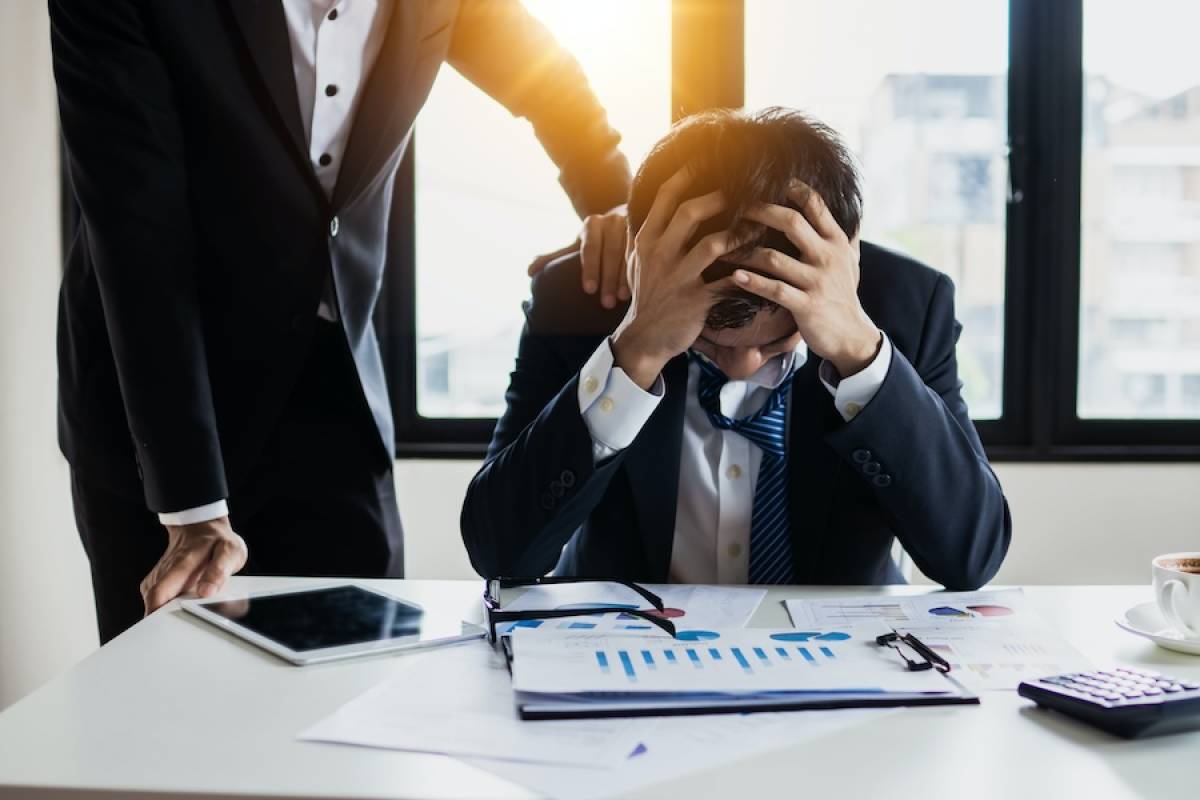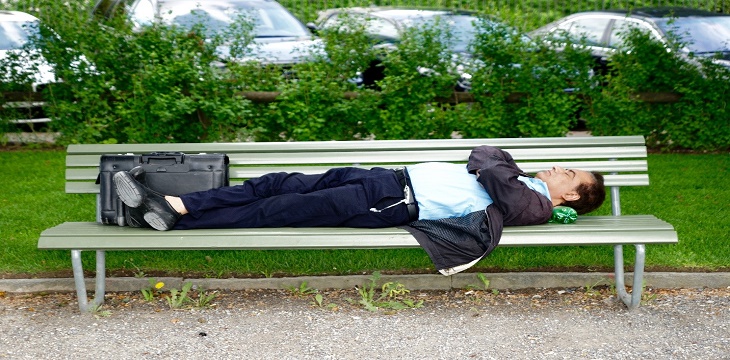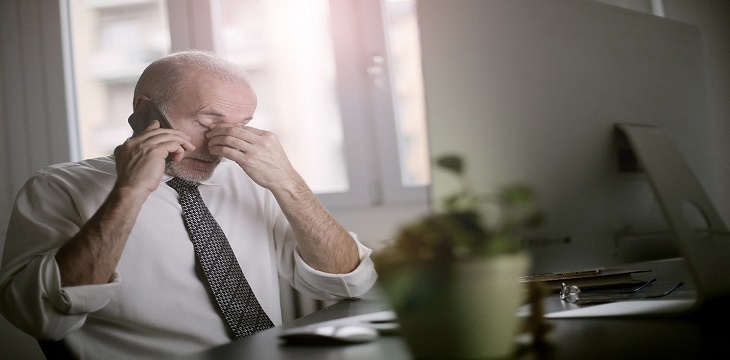Dealing with Work Anxiety, Stress, and Depression the Right Way

In our work and business situations, dealing with difficult people, deadlines and other workplace issues is the cause of most work stresses and anxiety, including anxiety over finances.
What we'd all like to feel in our workplaces is homeostasis—the body moving along with stress minimized, working at its optimal level. Instead, anxiety, stress and depression seem to be increasing in society today, negatively impacting people’s personal and professional lives.
Individuals and families are suffering in silence, and that needs to change.
Depression is more than just being sad, having the blues, or being in those down times everyone goes through. Depression also doesn't usually 'kick in,' although death, job loss, and divorce can often be triggers. It creeps in rather more subtly and should be dealt with correctly.
How to Determine If You're Depressed or Just Sad
A legitimate way to assess whether sadness or anxiety may be at a point where clinical depression has become a reality is to take an online quiz. Most are only 8-10 questions, and as a self-evaluation, taking two or three of them will improve your understanding of factors professionals would need to know.
The online self-evaluation tests ask telling questions, like:
- "When did you become aware of feeling lower than normal?”
- “How sad and how often have you been low?”
- “Have friends commented?"
The online quizzes require honest answers to help you clearly know about your situation.
The first sign of low energy is often faster breathing and being out of breath, a result of your natural energy cycle having to work harder.
Other easy signs to spot are eating habits, with weight going up or down a lot, and restless sleeping habits, because fatigue is often a symptom of anxiety and depression.

How Low Energy Affects Both Mental State and the Body
That a well-rested mind can function better and reason more effectively is a no-brainer to understand. Doing a work function poorly because you've given up on everything, or just don't want it on your plate anymore, is bound to be reflected in less desirable outcomes.
There's a reason for that old axiom about sleeping on a decision, and it makes a quality difference with results.
When people feel that they lack the energy necessary to work through extra details with others, they sometimes agree to unrealistic expectations rather than negotiate the timing of work projects. Trapped by the notion that they won't be able to produce in a timely fashion, additional stress and anxiety is piled on.
It’s better to talk face-to-face about work issues instead of guessing about the response to an email point. That is a small, real affirmation of self-confidence. Avoidance, on the other hand, is only a temporary solution. Hiding from the boss or staying away from the lunchroom to avoid a personality conflict is a personal energy sucker.
However, when you address and get through any interpersonal situation, it creates a positive expectation for the next outcome, and such expectations are a boost for low mental energy. Creating realistic arrangements and deadlines will result in a less stressed atmosphere for everyone.
Tips for Coping with Depression and Anxiety

There are a number of things you can do to alleviate depression and workplace anxiety, stress, and depression, including:
1. Exercise
Exercise is the fastest way to fix anxiety and depression as signs of energy process woes. Building muscle mass, burning fat, and stretching your lung capacity are elemental benefits of exercise.
2. Create a personal wellness plan
Be positive with your attitude and emotions. Have a belief that what you're doing is more than just a treatment, that it's right for you.
When I was starting knee replacement rehab, I kept the belief that every single extra rep, toe-riser, or minute I sat in a machine went directly to my faster recovery. Becoming physically whole again was a shining time for an older athlete.
Guess what? You won't always want to do what you need to, so go with a plan of treatment, not the emotions of the moment.
If walking the dog around the block after work is part of your new exercise program, that's a good thing for both of you. Make the walks happen and give yourself a (mental) silver star. Then do it again tomorrow.
3. Eat heethy diets
Diets aren't really going to change anxiety levels, although natural foods instead of junk food help. Ginseng, chamomile, lavender, and saffron are sources of some comfort, but there's not a sufficient quantity of quality evidence to make any health comments about efficacy.
CBD oil has had some resistance about several studies, although any perceived lack on that front isn't actually real – as of this writing, there are almost 21,000 cannabidiol-related studies.
4. Get good sleep and rest
The Big Three of physically helping yourself are eat right, exercise, and get a decent amount of sleep. Go to bed earlier if necessary. Try for a regular sleep schedule, and even naps can be refreshing.
5. Ask for help
Few things can knock out a negative attitude faster than knowing you've got a wingman to help out. The 'yes' answer alone will allow some sun to shine through the clouds.

Effective Methods to Improve Productivity and Mental Health
Exercise has been a go-to method of chilling my anxieties for a long time. Two specific physical choices have been bicycling (6-15 miles) and shooting baskets.
When I get past a certain weight, I know I've gotten slack, and that always pushes me. When you feel physically better, a lot of other things fall in line.
Work on your 'body time.' if possible. Note that choosing between 'night owl' or 'early riser' as when you're at your best doesn't work if the office is open 8:00-5:00. But, imagine how much better your attitude would be if 9:00-6:00 were a possibility. It doesn't hurt to ask for a reasonable accommodation.
There are medications available that might help anxiety symptoms, but there are also a discouraging number of very adverse side effects with over the counter (OTC) prescriptions. However, all-natural Cannabidiol (CBD), which interacts with the endocannabinoid system (ECS) that regulates sleep, appetite, mood, and pleasure-pain centers is a viable option.
Losing weight can be a great way to improve mood and reduce overall stress, although easier said than done. Lots of people speak of more energy when they lose weight, and even if you don't become a totally new you, buy something as a self-reward. When you're down, every new positive is worth celebrating.
Eat smaller, more frequent meals to keep your blood sugar steady. This can help keep your body functioning at its optimal levels, resulting in a better mood.
Natural practices such as yoga are always a good option. Mindfulness goes beyond stretching or the downward dog pose. You know you're doing it to help yourself, so it's all about positives.
Having learned to bring myself out of meditation at a specific time while on lunch break at a retail job, I know being refreshed for the second half of the day was something that always helped me through. Even 15 minutes of quiet contemplation can work wonders.
Trained professionals are more than just a good idea, they are lifeguards when you're drowning. Learn more coping mechanisms, educate yourself on the realities of your specific situation, and learn more about possible contributing factors.
Complementary therapies like counseling, natural remedies, and that walk around the block, are often great ways to combat stressors in more ways than one.
Don't rely on herbs and supplements as a stand-alone treatment or a substitute for professional help, especially if there's any risk of suicide. Tell your doctor about anything you're taking, and recognize you might need to try more than one option.

Give Yourself Time to See the Results of Treatment
If you've been feeling helpless and hopeless, that won't stop day one, two, or three, no matter what. Complete the whole healing process and stay positive as you see a little more of the light at the end of the tunnel.
If there's something you've started doing to get more or better sleep, and you simply feel better at the end of the day, stick with it.
Thoughts of suicide are a rising risk factor that should not be ignored, and talking to someone, specifically a professional counselor, is not a waste of time. Let them know what your needs and expectations are, and listen carefully to the answers.
Loss of interest in activities you previously enjoyed can be resurrected at any time. Go play darts, paint brilliant ceramic figures, or go further on a bike ride than you have in a while. Achievement at even lower levels is good for the soul.





















![The Benefits of Coolsculpting Procedures for Fat Reduction [node:title]](/sites/default/files/styles/video_thumbnail_bottom/public/man-hand-holding-tummy-body-fat.jpeg?itok=QrJspN6u)